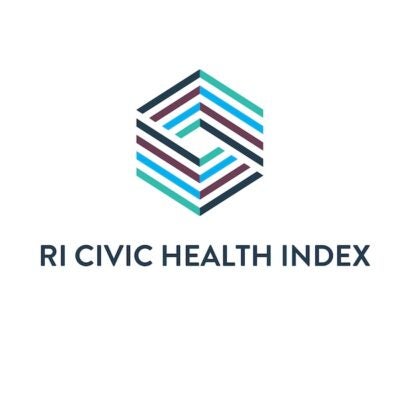Elizabeth Francis & Julia Renaud, Rhode Island Humanities
Colin Woodard, Nationhood Lab, Salve Regina University
Watch a recording of the talk on our YouTube channel.



Elizabeth Francis leads Rhode Island Humanities’ promotion of public history, cultural heritage, civic education, and community engagement. Elizabeth has expertise in building partnerships and initiatives that bring together humanities scholars, community members, public humanities practitioners, and policy makers in economic and cultural development. Deeply interested in the connection between public participation in cultural activities and overall civic health in communities, Elizabeth recently co-authored, with Julia Renaud, Culture is Key: Strengthening Rhode Island’s Civic Health Through Cultural Participation (2022), an initiative that led to the development of the state’s first-ever Civic Health Index (2022). Elizabeth earned a PhD in American Studies at Brown University and a BA at Hampshire College. Elizabeth is serving as Secretary of the State Commission for the commemoration of the 250th anniversary of the American Revolution.
Rhode Island Humanities’s Associate Director of Grants and Humanities Initiatives Julia Renaud believes that public history, cultural heritage, civic education, and community engagement—the work of the public humanities—are integral to nurturing, strengthening, and inspiring all communities in Rhode Island. During her time at RI Humanities, she has co-authored the Culture Is Key report (2022) with Executive Director Elizabeth Francis and Civic Health Fellow Julia Lazarus, and the first-ever Rhode Island Civic Health Index (2022)—awarded the Federation of State Humanities Councils’s 2023 Schwartz Prize—with Data Consultant Neelam Sakaria. Prior to joining RI Humanities, Julia worked in cultural nonprofits in New York and Providence as an archivist, educator, curator, and public historian. Originally from the San Francisco Bay Area, Julia holds an MA in Public Humanities from Brown University and an AB, summa cum laude, in American History and Literature with a minor in History of Art and Architecture from Harvard University.
Francis (Renaud was unable to attend) discussed the 2022 Rhode Island Civic Health Index which draws upon data-driven indicators and information about diverse connections to civic life to examine Rhode Island’s civic well-being. The Index provides a baseline to help communities, leaders, and policy makers understand what challenges and opportunities Rhode Islanders share. The award-winning report served as the state’s first-ever Civic Health Index, an initiative led by Rhode Island Humanities in partnership with the National Conference on Citizenship (NCoC) and the Rhode Island Department of State with funding from the National Endowment for the Humanities through the “A More Perfect Union” initiative and from the Rhode Island Foundation.
Colin Woodard is the director of Nationhood Lab at the Pell Center for International Relations and Public Policy at Salve Regina University. He is the New York Times bestseller author of six books including American Nations: A History of the Eleven Rival Regional Cultures of North America and Union: The Struggle to Forge the Story of United States Nationhood. A longtime foreign correspondent, he reported from more than fifty counties and seven continents for The Christian Science Monitor and San Francisco Chronicle, and won a 2012 George Polk Award and was a finalist for a 2016 Pulitzer Prize for his investigative reporting at Maine’s Portland Press Herald. A graduate of Tufts University and the University of Chicago, he is a past Pew Fellow in International Journalism at the Johns Hopkins University School of Advanced International Studies and a current Fellow of the Royal Geographical Society in London.
Woodard discussed the Nationhood Lab, an interdisciplinary research, writing, testing and dissemination project focused on counteracting the authoritarian threat to American democracy and the centrifugal forces threatening the federation’s stability. The project delivers more effective tools with which to describe and defend the American liberal democratic tradition and better understand the forces undermining it. This fall they completed an in-depth message development and testing initiative to create an effective, compelling messaging strategy for a U.S. civic national narrative. The effort, involving multiple national polls and in-depth qualitative interviews, defines U.S. purpose, identity and belonging around the natural rights assertions in the Declaration of Independence and is meant to out compete the ethnonational authoritarian “MAGA” alternative.

